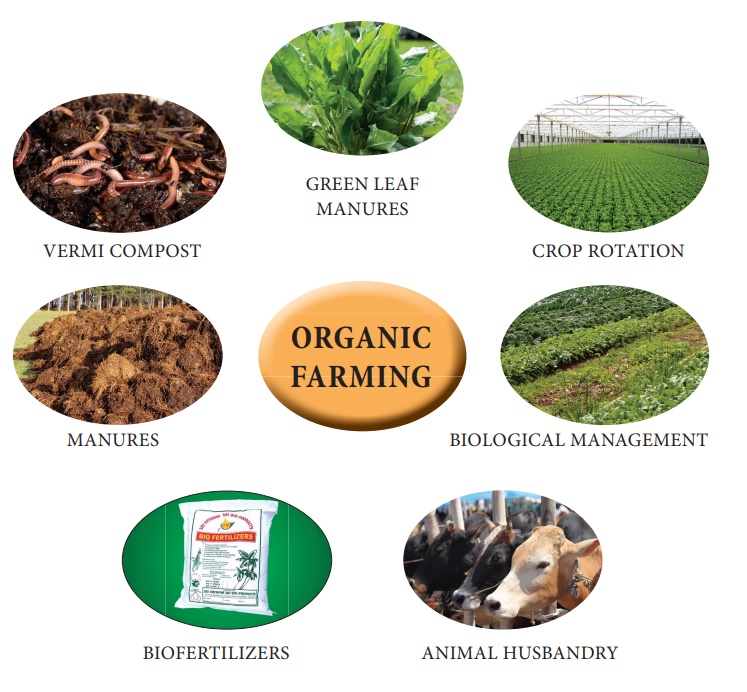Environmental Economics - Organic Farming | 12th Economics : Chapter 10 : Environmental Economics
Chapter: 12th Economics : Chapter 10 : Environmental Economics
Organic Farming
Organic Farming
Organic farming is a system of agricultural production which
relies on animal manure, organic waste, crop rotation, legumes and biological
pest control. It avoids use of synthetic fertilizer, pesticides and livestock
additives. Organic inputs have certain benefits, such as enriching soil for
microbes.
Organic production is a holistic system designed to optimize the
productivity and fitness of diverse communities within the agro-ecosystem,
including soil organisms, plants, livestock and people. The principal goal of
organic production is to develop enterprises that are sustainable and
harmonious with environment. The general principles of organic farming are:
1. Protect the environment, minimize soil degradation and erosion,
decrease
pollution, optimize biological productivity and promote a sound
state of health.
2. Maintain long-term soil fertility by optimizing conditions for
biological activity within the soil
3. Maintain biological diversity within the system
4. Recycle materials and resources to the greatest extent possible
within the enterprise

5. Provide attentive care that promotes the health and meets the
behavioural needs of livestock
6. Prepare organic products, emphasizing careful processing, and
handling methods in order to maintain the organic integrity and vital qualities
of the products at all stages of production.
7. Rely on renewable resources in locally organized agricultural
systems.
Alkali Farming
Nearly 50 percent of the irrigated land in the arid and
semi-arid regions has some degree of soil salinization problems. The occurrence
of accumulation of excess salt/ acid in the root zone, results in a partial or
complete loss of soil productivity and such soil is defined as ‘Problem
(alkali, saline & acid) Soils’ and exist mainly in arid and semi-arid
regions.
The alkali soils are predominantly located in the Indo-Gangetic
plains encompassing States of Punjab, Haryana, Uttar Pradesh, Bihar and partly
in States like, Chhattisgarh, Rajasthan, Andhra Pradesh, Gujarat, Maharashtra,
Karnataka, Andhra Pradesh, Madhya Pradesh and Tamil Nadu.
Related Topics